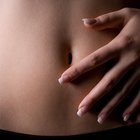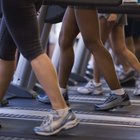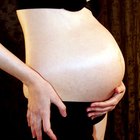Liderina/iStock/GettyImages
Drowsiness or falling asleep after a heavy meal is a common problem for many people of all ages, and it is not usually a sign of a more serious problem. If you're not into taking naps after dinner, or if the sleepiness is interfering with your family's life, a couple of simple changes may alleviate the symptoms.
Natural Causes
A complex set of factors including brain chemistry and blood sugar levels work together to cause sleepiness after meals. Dinner tends to be a heavier meal, so the effects are more pronounced. Your stomach produces extra acid to compensate for lower levels of acidity in the bloodstream. Medical professionals call this natural reaction an "alkaline tide." Meals high in carbohydrates cause sleepiness in some people, particularly those who are insulin-resistant. Feeling the need to sleep after a big meal at the end of the day also may simply be a matter of being tired from work or play.
Medical Causes
Some underlying medical factors cause sleepiness after meals. Talk to your doctor if you suddenly start getting sleepy or if the sleepiness gets progressively worse. The doctor may check for anemia, diabetes, hypothyroidism, kidney problems or an infection. An electrolyte imbalance or sleep deprivation may also be the culprit. Some medications cause sleepiness, as do more severe sleep disorders like sleep apnea and narcolepsy.
Making Changes
Try changing your eating habits to see if that relieves the postprandial, or after-meal, drowsiness. Serve smaller portions and choose healthy carbohydrates with high fiber, like whole-grain foods, beans, and fresh fruits and vegetables rather than white bread, white rice and sugary sodas. If your schedule allows it, try serving dinner earlier in the evening. Examine your work schedule and make adjustments if you suspect being overtired in general contributes to your sleepiness.
Easing the Effects
Gather the family for a walk immediately after your meal. Half an hour of low-impact exercise keeps you wakeful and has other added health benefits, such as possible weight loss and an improved outlook on life. A number of websites have a short, nonscientific sleep-deprivation quiz. If you do have sleep deprivation, try going to bed 15 minutes earlier each night for a week, and then add 15 minutes for the next week. Keep doing this until you wake up on your own in the morning and feel energetic throughout the day.
Related Articles

How to Get Fit in 4 Weeks

The Objectives of Proper Hygiene

What to Eat for Dinner After a Long ...

Is Skipping Lunch Bad for You?

The Best Time to Eat Dinner

How to Remove Dark Stains on Teeth

Vitamins for Mental Alertness

How to Get Rid of Stomach Hair ...

How to Take Vitamins With Coffee

How to Make Your Husband Miss You

How Exercise Increases Hair Growth

How to Make Homemade Moisturizing Cream ...

How to Entertain Bored Teenagers
Healthy Easy Snacks to Take on My Boat

Copper Peptides Side Effects

How to Stop Stretch Marks From Getting ...

How to Repair Open Pores

Herbs That Cause Photosensitivity

The Benefits of Castor Oil Packs

Can I Exercise on the Master Cleanse ...
References
Resources
Writer Bio
Meg Jernigan has been writing for more than 30 years. She specializes in travel, cooking and interior decorating. Her offline credits include copy editing full-length books and creating marketing copy for nonprofit organizations. Jernigan attended George Washington University, majoring in speech and drama.